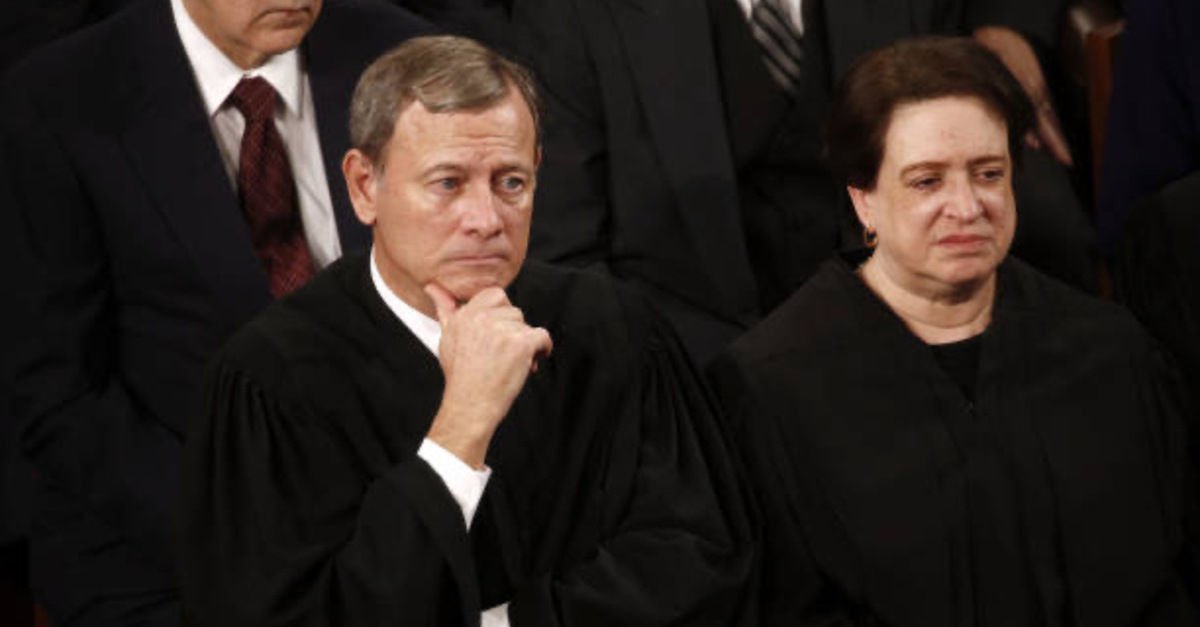
Chief Justice John Roberts on Wednesday appeared inclined to vote with the U.S. Supreme Court’s liberal justices in ruling against a Louisiana law requiring abortion clinic doctors to have admitting privileges at a nearby hospital. It is a case that has the potential to reshape foundational principles governing women’s right to access abortion.
During Wednesday morning’s oral arguments in June Medical Services L.L.C. v. Russo, Roberts seemed to favor following the court established precedent from a factually similar 2016 case (Whole Woman’s Health v. Hellerstedt). That case found an identical Texas regulation placed an unconstitutional burden on women seeking abortions.
Roberts is widely viewed as the deciding vote on the case at hand, with the court’s other eight justices firmly entrenched on the issue.
While the Chief Justice joined the court’s four liberals last year in voting to block the Louisiana law from taking effect until a decision was reached on the merits of the case, he also penned a dissent from the majority’s decision in Hellerstedt.
But despite his 2016 dissent, Roberts on Wednesday persistently questioned Louisiana’s solicitor general as to why the court shouldn’t follow the precedent established in Hellerstedt and instead conduct a state-by-state analysis of each duplicative law.
“[I]f […] the statutes are on the books in other states, and if the issues are raised there, is the same inquiry required in each case?” Roberts asked. “You have to have the district court examine the availability of specific clinics and the admitting privileges of doctors so that the litigation could be — the results could be different in different states?”
While there are no guarantees, the consensus of reports by those in attendance for oral arguments seemed to think Roberts felt obligated to view the Hellerstedt decision as binding.
Slate legal reporter Mark Joseph Stern believed Roberts was leaning toward voting against the Louisiana law.
“I think there is actually a chance Chief Justice Roberts will apply Whole Women’s Health and strike down Louisiana’s admitting privileges requirement,” Stern said after the hearing.
“Roberts repeatedly asked how the admitting privileges requirement could benefit Louisiana women HERE if it didn’t benefit Texas women in WWH,” he continued. “Asked a variation on that question several times. Louisiana didn’t give a good answer. Also Louisiana’s solicitor general was awful.”
University of Texas law professor Stephen Vladeck said such a decision from Roberts would not be surprising.
This is the first major abortion case to come before the court since President Donald Trump appointed Justices Neil Gorsuch and Brett Kavanaugh. Trump campaigned in 2016 on creating a court that would overturn the landmark abortion case, Roe v. Wade.
While the Louisiana case would not allow the justices to revisit the court’s decision in Roe, as the law does not attempt to outlaw abortion procedures, the court could reverse another landmark reproductive rights case, 1992’s Planned Parenthood v. Casey. In Casey, the court ruled that “unnecessary health regulations that have the purpose or effect of presenting a substantial obstacle to a woman seeking an abortion impose an undue burden on the right.” Under Casey, laws which create such burdens and obstacles are unconstitutional.
Read the transcript from Wednesday’s oral arguments below:
SCOTUS Louisiana Abortion Transcript by Law&Crime on Scribd
[image via Stefani Reynolds/Bloomberg via Getty Images]
Have a tip we should know? [email protected]